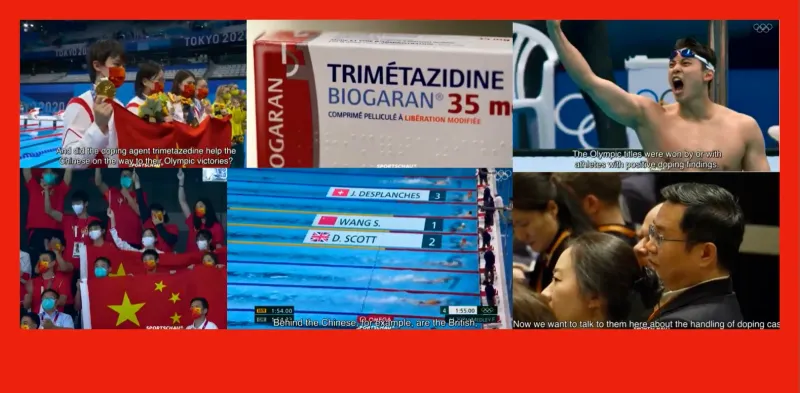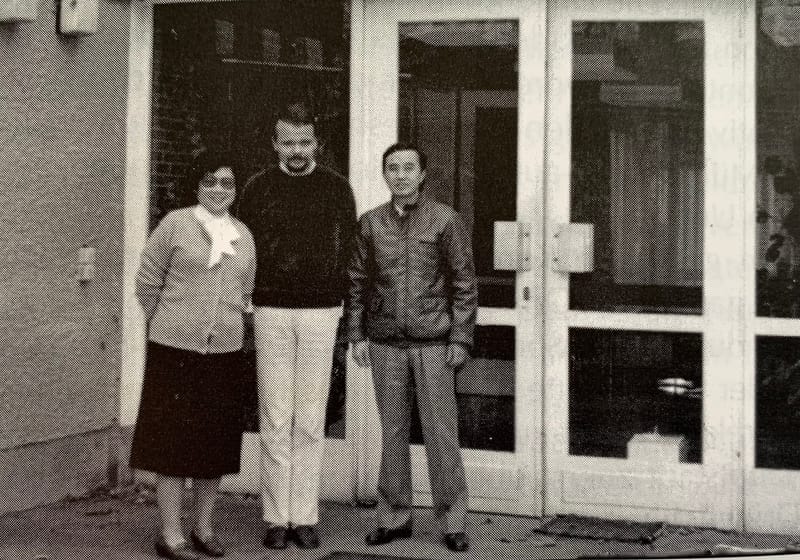USADA Says Knighton Case Highlights How WADA "Secretly Changed" Contamination Rules For Some Not All
USADA's latest shot across WADA's bows came in a statement over a challenge to its decision to clear American athlete Erriyon Knighton of wrongdoing, after a provisional suspension and investigation in a trenbolone case that stands in stark contrast to the handling of China 23-go-free

The United States Anti-Doping Agency (USADA) has accused the global regular charged with challenging adverse findings of dragging its heels on reform of rules covering contamination cases even though the World Anti-Doping Agency (WADA) "secretly changed the rules for certain athletes and countries, as seen in the 23 TMZ and two metandienone Chinese cases.”
The latest war of words between the anti-doping authorities centres on the case of Erriyon Knighton, who was cleared of wrongdoing after testing positive for a banned substance that an investigation subsequently found to have been in meat consumed by the American track athlete.
Despite a lack of any independent investigation of Chinese swimming cases of contamination in 2021, WADA said in June that the Knighton case showed what it called USADA's "double standards". WADA has denies treating some athletes and nations differently to others and has issued several laments over what it describes as the "politicisation" of anti-doping.
It's yet another pressure point in global anti-doping schism sparked by WADA's decision in 2021 to accept without legal challenge China's narrative on 28 positives for heart-booster trimetazidine (TMZ) returned in-competition by 23 swimmers just over six months out from the Tokyo Olympics even though travel constraints during the Covid pandemic meant that independent investigation and verification of the 'evidence' was neither carried out nor possible.
The two metandienone (Dianabol) cases Usada were revealed last month during the Olympics in Paris and come on the back of a series pdf similar cases dating back to 2015 and in which "no fault" verdicts on grounds of 'contamination' were reported by Chinada and accepted by Wada and, at the time, FINA (since rebranded World Aquatics).
Those "no-fault" cases involved at least four swimmers who competed in Tokyo and again in Paris at the Olympic Games that came to a close last Sunday after all four swimmers claimed medals.
A total of 13 swimmers among the 23 TMZ cases from 2021 were selected to race for China in Paris, where the Chinese team doubled its tally of Tokyo medals from 6 to 12, topped in Paris by two golds, including Pan Zhanle, who is not connected to the 2021 or more historic case files.
USADA's latest shot across WADA's bows came in a statement over a challenge from the Athletics Integrity Unit (AIU) to USADA's decision to clear American athlete Erriyon Knighton of wrongdoing, after a provisional suspension and investigation. He had tested positive for trenbolone, a substance banned in sport but used in meat production in the United States.
USADA noted that any such challenges from the AIU, WADA or an international federation, such as World Athletics, are "an example of the system at work as required by the rules".
However, it notes in stark terms how no such rigour was applied in the cases of the 23 Chinese swimmers.
In full:
Statement by Travis T. Tygart in Response to Appeal of Erriyon Knighton Case
Colorado Springs, Colo. (August 14, 2024) – “It is the right of the World Anti-Doping Agency (WADA) and every International Federation (IF) to review and determine whether to appeal a national level case involving an athlete in the IF’s sport. This is an example of the system at work as required by the rules.
In this case, USADA did exactly what the rules demand: When Knighton tested positive for a low level of trenbolone during an out-of-competition test, we provisionally suspended him, tested his B sample, and charged him with a potential anti-doping rule violation.
We expedited the case to an independent arbitrator who heard all the evidence and determined that Knighton was without fault for the violation due to the evidence linking the meat he ate at a restaurant to the prohibited substance and given his testing history. Both AIU and WADA observed the hearing.
The arbitrator’s decision was publicly announced, and in line with the mandatory rules on transparency, we published both the operative award and the full reasoned decision as soon as they were made available.
The handling of this case by USADA in accordance with the rules is in stark contrast to how China and WADA handled the 23 TMZ positives and the recently exposed two steroid positives for metandienone.
In the TMZ cases, WADA allowed China not to notify the athletes of the positive tests; neither China nor WADA enforced the mandatory provisional suspension rules; athletes were not able to have their B samples analyzed; and both WADA and China failed to find the source of the TMZ that they want the world to believe magically appeared in the kitchen.
TMZ is a controlled drug not found in food, the environment, the atmosphere, or hotel kitchens. Most importantly, WADA allowed China to sweep these cases under the rug and not announce them even though the mandatory rules require, without exception for contamination cases, that violations be found and that they be published. Transparency is the backbone of the global anti-doping system, and WADA turned a blind eye toward it.
We understand the AIU’s reasons for appealing this case, as we assume they are the same reasons for which we charged and prosecuted the case. The real issue in this case is WADA’s bad rule.
Trenbolone, the substance in Knighton’s case, is a known livestock enhancer and known to be found in the meat supply. The level in the athlete’s sample was below 1ng/ml, and the meat he ate was proven to be from the same supplier of meat at the restaurant that was later analyzed and tested positive for trenbolone.
We have advocated for the rules around contamination to formally change for years, and WADA has refused to act swiftly. But the world now knows WADA has secretly changed the rules for certain athletes and countries, as seen in the 23 TMZ and two metandienone Chinese cases.”




